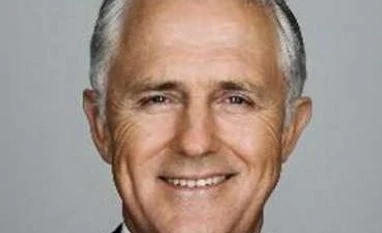Australia's prime minister insisted on Monday a referendum on legalising same-sex marriage will be held this year if his government is re-elected despite the Labour opposition calling it "a taxpayer-funded platform for homophobia".
The country holds elections on July 2 with the latest opinion poll showing the ruling Liberal-led coalition and Labour neck-to-neck.
Prime Minister Malcolm Turnbull, who is well-known for his support of gay marriage, is in favour of a referendum on the issue instead of a parliamentary vote.
"We have a very clear policy which is that every Australian will get a vote on the subject," Turnbull, the first sitting Australian leader to attend the Sydney Gay and Lesbian Mardi Gras parade, told reporters.
"Of course, if we are successful on July 2, then I have every expectation that the parliament will swiftly legislate for a plebiscite and a plebiscite will be held shortly after parliament resumes, which I would assume to be in August.
"So I would hope that the plebiscite could be held before the end of the year."
Labour has pledged to hold a parliamentary vote to change the Marriage Act within 100 days if it wins office, and warned that allowing the public to decide risked exposing underlying homophobia.
It has suggested a plebiscite could unleash hateful advertising and expose children of gay parents to negative messages.
"In modern Australia, no one should have to justify their sexuality or their love, to anyone else," Labour leader Bill Shorten said at Labour's official election campaign launch yesterday.
"And instead of sitting in judgement, instead of providing a taxpayer-funded platform for homophobia, we will gift every Australian an equal right in respect of love. Nothing less."
Australia is seen as lagging behind a growing number of countries on marriage reform and popular support for change is high.
Same-sex couples can have civil unions or register their relationships in most states across Australia, but the government does not consider them married under national law.
The issue is shaping up as a key election issue, along with economic management, immigration, and climate change, in polls too close to call.
The country holds elections on July 2 with the latest opinion poll showing the ruling Liberal-led coalition and Labour neck-to-neck.
Prime Minister Malcolm Turnbull, who is well-known for his support of gay marriage, is in favour of a referendum on the issue instead of a parliamentary vote.
More From This Section
But Labour has hardened its language against a public vote, in what commentators said was a strategic move to set up the issue as a clear choice on polling day.
"We have a very clear policy which is that every Australian will get a vote on the subject," Turnbull, the first sitting Australian leader to attend the Sydney Gay and Lesbian Mardi Gras parade, told reporters.
"Of course, if we are successful on July 2, then I have every expectation that the parliament will swiftly legislate for a plebiscite and a plebiscite will be held shortly after parliament resumes, which I would assume to be in August.
"So I would hope that the plebiscite could be held before the end of the year."
Labour has pledged to hold a parliamentary vote to change the Marriage Act within 100 days if it wins office, and warned that allowing the public to decide risked exposing underlying homophobia.
It has suggested a plebiscite could unleash hateful advertising and expose children of gay parents to negative messages.
"In modern Australia, no one should have to justify their sexuality or their love, to anyone else," Labour leader Bill Shorten said at Labour's official election campaign launch yesterday.
"And instead of sitting in judgement, instead of providing a taxpayer-funded platform for homophobia, we will gift every Australian an equal right in respect of love. Nothing less."
Australia is seen as lagging behind a growing number of countries on marriage reform and popular support for change is high.
Same-sex couples can have civil unions or register their relationships in most states across Australia, but the government does not consider them married under national law.
The issue is shaping up as a key election issue, along with economic management, immigration, and climate change, in polls too close to call.
)